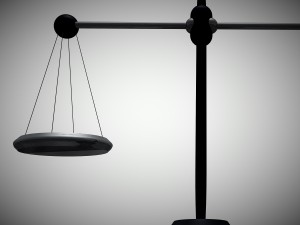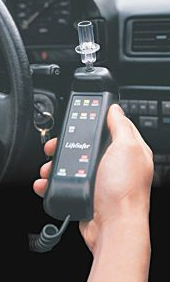Until a few days ago, the scope of driving privileges for Ohio DUI/OVI suspensions was very limited. A parent on limited driving privileges was not permitted to drive children for extra-curricular activities. A person on limited driving privileges was not allowed to drive to care for elderly parents. A person on limited driving privileges could not drive to AA or counseling unless it was court-ordered. That changed last week, when the state legislature revised Ohio law for limited driving privileges.
Articles Posted in DUI/OVI license suspensions
Ohio Administrative License Suspensions-Lesson #2
 The last entry in this blog discussed lesson number one for appealing an Ohio Administrative License Suspension (A.L.S.). The lesson came from a recent appellate case. That lesson was for defense lawyers, and it was simple: file the appeal on time. This entry discusses lesson number two, which also comes from a recent appellate case. This lesson is for courts, and it is also simple: follow the law.
The last entry in this blog discussed lesson number one for appealing an Ohio Administrative License Suspension (A.L.S.). The lesson came from a recent appellate case. That lesson was for defense lawyers, and it was simple: file the appeal on time. This entry discusses lesson number two, which also comes from a recent appellate case. This lesson is for courts, and it is also simple: follow the law.
Ohio Administrative License Suspensions-Lesson #1
 Practicing law is an art, not a science, and there are various methods to develop skill at the art of lawyering. One method is to learn the hard way. In a recent Ohio OVI case, the defense lawyer learned the hard way lesson number one for appealing an Administrative License Suspension (A.L.S.). Hopefully, others will learn from this example.
Practicing law is an art, not a science, and there are various methods to develop skill at the art of lawyering. One method is to learn the hard way. In a recent Ohio OVI case, the defense lawyer learned the hard way lesson number one for appealing an Administrative License Suspension (A.L.S.). Hopefully, others will learn from this example.
Class Action Lawsuit Challenges DUI Administrative License Suspensions
 Ohio takes drivers’ licenses before a person is found guilty of DUI/OVI. If a person is arrested for DUI/OVI and tests over the limit, or refuses to test, that person’s license is suspended immediately. No judge reviews the circumstances beforehand to determine if the suspension should be imposed. Instead, the executive branch of the government takes the driver’s license automatically.
Ohio takes drivers’ licenses before a person is found guilty of DUI/OVI. If a person is arrested for DUI/OVI and tests over the limit, or refuses to test, that person’s license is suspended immediately. No judge reviews the circumstances beforehand to determine if the suspension should be imposed. Instead, the executive branch of the government takes the driver’s license automatically.
What Happens When An Ohio Driver Gets A DUI In Another State?
 I’m traveling to another state for a seminar next week. It just so happens the state is Nevada, and the seminar is in Las Vegas. For me, there is no risk of being convicted of DUI in Nevada because the trip is all about education! Sometimes, however, an Ohio driver comes home with the unwanted souvenir of an out-of-state DUI conviction. When it comes to DUI, what happens in Vegas does not stay in Vegas: there are consequences in Ohio for a DUI conviction in another state.
I’m traveling to another state for a seminar next week. It just so happens the state is Nevada, and the seminar is in Las Vegas. For me, there is no risk of being convicted of DUI in Nevada because the trip is all about education! Sometimes, however, an Ohio driver comes home with the unwanted souvenir of an out-of-state DUI conviction. When it comes to DUI, what happens in Vegas does not stay in Vegas: there are consequences in Ohio for a DUI conviction in another state.
Drink Driving In Scotland Compared To DUI / OVI In Ohio
I thought they were all drunk: they were driving on the wrong side of the road. But they weren’t drunk, they were just driving in Scotland. And so was I. I drove on the left, sat on the right, and shifted with my left on the endless roundabouts and turns. I navigated all the sheep, stone walls, and cliffs as I drove from the English countryside to the Scottish highlands, so I consider my recent holiday a driving success. The trip prompted me to compare the drunk driving laws of Ohio to the ‘drink driving’ laws of Scotland.
New Book Provides Readers With Valuable Information About DUI/OVI In Ohio
 It won’t win a Pulitzer Prize, it will not be mentioned with the New York Times best sellers, and it will not be at the top of readers’ ‘wish lists’. In fact, most people may not find it very interesting. If you are charged with a DUI/OVI in Ohio, however, this book suddenly becomes a must-read. I’m talking about the new book: I Was Charged With DUI/OVI, Now What?!
It won’t win a Pulitzer Prize, it will not be mentioned with the New York Times best sellers, and it will not be at the top of readers’ ‘wish lists’. In fact, most people may not find it very interesting. If you are charged with a DUI/OVI in Ohio, however, this book suddenly becomes a must-read. I’m talking about the new book: I Was Charged With DUI/OVI, Now What?!
Should We Use Interlock Instead Of License Suspensions For Ohio DUI/OVI Sentences?

An Ohio DUI / OVI sentence has several parts. There is mandatory jail time (or a driver intervention program for a first offense), a mandatory fine, and a mandatory license suspension. For a first offense, the license suspension is a minimum of six months and a maximum of three years, and the judge has discretion to grant or deny limited driving privileges. There are also optional sanctions for a first offense, and one of those sanctions is the use of an ignition interlock device. Proposed legislation in New Jersey would replace mandatory license suspensions with mandatory use of an ignition interlock. Should Ohio consider this change?
Is Ohio’s Implied Consent Law For DUI/OVI Unconstitutional?

A recent vehicular homicide case in Wisconsin triggers the question of whether Ohio’s implied consent law is constitutional. In that case, a former Lutheran bishop is accused of what Ohio calls Aggravated Vehicular Homicide; causing the death of another person by operating a vehicle under the influence. The bishop was told that he would lose his license if he did not consent to a blood test, so he submitted to the test. His attorney argued that the threat of a license suspension amounts to coercion, and that makes the implied consent law unconstitutional. In Ohio, this issue has been decided.
Driver’s License Suspended For Inability To Urinate On Cue
 Imagine that you are arrested for DUI (called OVI in Ohio), and the officer takes you to a police station to take a urine test. You want to comply, because you’re sure the test will prove you are under the legal limit, but you don’t need to go. In fact, you can’t go. You drink a bunch of water and wait a while, but you still can’t go. The officer then says you refused the urine test, so your driver’s license is suspended for one year.
Imagine that you are arrested for DUI (called OVI in Ohio), and the officer takes you to a police station to take a urine test. You want to comply, because you’re sure the test will prove you are under the legal limit, but you don’t need to go. In fact, you can’t go. You drink a bunch of water and wait a while, but you still can’t go. The officer then says you refused the urine test, so your driver’s license is suspended for one year.
 Columbus OVI/DUI Attorney Blog
Columbus OVI/DUI Attorney Blog



